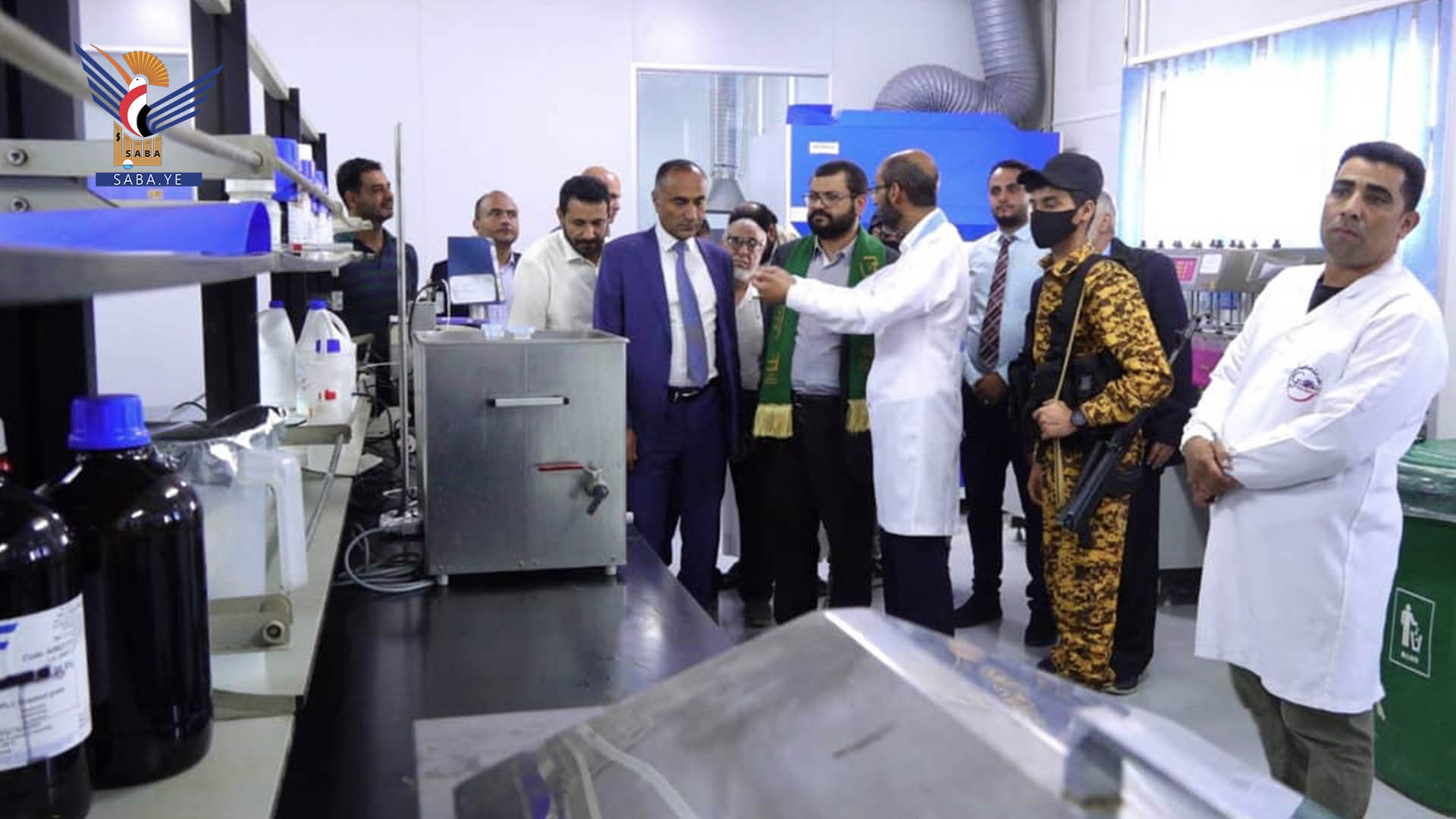Sana'a - Saba:
The pharmaceutical sector in Yemen has faced significant challenges over the past ten years of aggression, despite the disastrous effects of the blockade on the sector and patients, especially those with chronic diseases.
The blockade and aggression have had disastrous repercussions on most aspects of life, most notably the pharmaceutical sector, especially since the closure of Sana'a Airport. Most medicines and items requiring special transportation conditions (refrigeration) have become unavailable or in short supply. These products, which include more than 38 generic names, include hundreds of brand names that were in high demand before the aggression.
The blockade has caused thousands of patients to lose their medications, including kidney transplant medications, blood products, hormonal medications, and some diagnostic solutions.
The pharmaceutical industry and ensuring drug security have topped the priorities of the revolutionary leadership and the Supreme Political Council, given the systematic targeting of this vital sector by the aggression and its repercussions, which have led to a drug shortage.
Given the state and government's interest in the pharmaceutical industry, a favorable climate has been created to build national pharmaceutical industries that ensure drug security, within the framework of localizing pharmaceutical industries in the country.
This interest was recently demonstrated by the issuance of Law No. (4) of 1446 AH regarding medicine and pharmacy, which includes 99 articles.
The law aims to regulate the registration, import, manufacture, distribution, and circulation of medicines, ensuring their safety, quality, efficacy, and security, in addition to matters related to the rational use of medicines and regulating their prescription, dispensing, and sale.
It also aims to protect individuals and society from the harms and dangers resulting from the misuse or circulation of medicines, or from counterfeit and smuggled medicines, or narcotic and psychotropic substances. It also regulates the practice of the pharmacy profession according to scientific standards, ensuring its advancement and protecting society from unsound practices. It also regulates the foundations and rules for establishing, opening, managing, and operating pharmaceutical facilities and their activities, and all matters related to encouraging, localizing, and developing the pharmaceutical industry and achieving self-sufficiency.
The Minister of Health and Environment, Dr. Ali Shaiban, considered the law the first medicine and pharmacy law issued in the Republic of Yemen. The law was based on the decision to establish the General Authority for Medicines and its amendments and certain public health laws.
He emphasized that the issuance of the law is the first step in a series of planned measures aimed at developing and advancing pharmaceutical work, moving from considering medicine as a commodity to be bought, sold, and monopolized to treating, manufacturing, and distributing it as a service provided to the public without exploitation. It also aims to rationalize and govern the use of medicine, ensuring its use only when needed, and regulating the sale and circulation of medicine.
He explained that the law regulates the mechanism for providing the country's drug stockpile, ensuring drug security and localizing pharmaceutical industries by encouraging local industries to achieve self-sufficiency.
Dr. Shaiban emphasized that the Ministry of Health recognizes that medical work in general, and pharmaceutical work in particular, requires cooperation from "ministries, companies, manufacturers, pharmacies, pharmacists, and citizens." He emphasized that progress cannot be achieved without the effective and genuine participation of all parties to achieve the national interest and serve the people.
He commended the efforts of all those who participated, provided comments, and revised the draft, including pharmacists from the Ministry, the Authority, and the Syndicate, as well as members of the Health and Finance Committees in the House of Representatives and the supporting committees, who exerted strenuous efforts in discussion, review, and drafting until it was brought to fruition.
In light of the state and government's interest in the pharmaceutical industry, a favorable climate has been created to build a strong national pharmaceutical industry that ensures drug security.
Given the importance of national pharmaceutical security, practical and executive measures have been initiated to advance pharmaceutical production and manufacturing and enhance competition among local companies, this is under the directives of the President of the Supreme Political Council to exempt pharmaceutical manufacturing inputs from tax duties, serving the pharmaceutical sector and developing its current and future role.
The Ministry of Health is making significant efforts to advance the pharmaceutical industry through the Supreme Authority for Medicines and Medical Supplies.
A report issued by the Ministry, a copy of which was received by the Yemeni News Agency (Saba), indicated that the authority has prepared its regulatory bylaws, issued the pharmaceutical policy for the coming years, and updated the list of essential medicines.
The report indicated that companies have been organized and registered to enhance the availability of medicines to citizens and break monopolies, Sixty-six types have been restricted to local production, a decision has been issued to localize 1,000 types over the next five years, stimulate local industry, and construct three new factories as part of a plan to reach 12 factories, Twenty applications have been received to establish new pharmaceutical factories, in addition to the first-ever application to establish a medical supplies factory.
growth hormone. It also provided three million vials of insulin worth $22 million. Medications for blood diseases, genetic diseases, and hemophilia worth $15 million were also provided, as were medications for immune diseases, kidney and organ transplants, and multiple sclerosis, Diphtheria vaccine and essential medications were also provided, as were medications for centers and units for more than 2,000 facilities, totaling more than 25 billion riyals.
M.M

| more of (Reports) |



